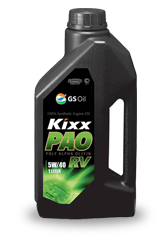Motor Oil or Engine Oil is mainly used in internal combustion engines. Its main purpose is to lubricate the moving parts, cleans the engine, prevents corrosion and cools the engine. It reduces friction which wastes the converted energy between metal parts thus prolong the engine life and efficient fuel consumption and increase working power.
Why is it important to periodically change your engine oil? The purpose of frequent oil change is to make sure that the oil lubricating your engine is always fresh and clean. Over used oil losses its capability to lubricate the engine which defies its purpose. Engine Oil is changed to mainly prolong the life of the engine by keeping it clean and cool and well lubricated. It will also decrease pollution and decrease the fuel consumption since fuel will be burned efficiently.
There are different types of Engine Oil. There are petroleum and non petroleum based motor oil. Engine oils are blended today by using base oils composed of hydrocarbons. There are single grade and multi-grade engine oils. Application for single grade engine oils are used for not very wide temperature ranges. i.e. industrial applications, lawn mower. Multi-grade engine oils on the other hand can operate on a wider temperature range from cold temperature in the winter to hot temperature in the summer. Example of multi-grade is 10w-30, designated with two viscosity grade, where 10w is for the cold temperature designated by (W) Winter, and the 2nd one for the hot temperature.
The non petroleum based engine oil in the market today are also known as synthetic oil. True Synthetic based stocks are artificially synthesized. Synthetic Oils are first developed for military needs in 1930’s, it gain its popularity because of its ability to remain fluid on sub zero temperatures and its ability to lubricate engines on the opposite end (hot) of the temperature where mineral based lubricants already break down. It is in the 1970’s that synthetic oils are manufactured for application to automobiles. Synthetic Lubricants have higher purity and good mechanical properties at extremes of high and low temperatures. The molecules are large and “soft” enough to retain good viscosity at higher temperatures, and branched molecular structures interfere with solidification and therefore allow flow at lower temperatures. Synthetic motor oils have a much improved viscosity index over the traditional petroleum base. Their specially designed properties allow a wider temperature range at higher and lower temperatures. With their improved viscosity index, true synthetic oils need little or no viscosity index improvers, which are the oil components most vulnerable to thermal and mechanical degradation as the oil ages, and as a result, they do not degrade as quickly as traditional engine oils. Thus, periodic oil change for synthetic oils can be extended.
In changing the oil of your engine, it is imperative that you choose the correct specification for your vehicle model. You should always check your vehicle service manual for the right specification for your engine. In cases that your service manual is unavailable, the dates of the API service specifications rating can be helpful.
We also have Automotive Gear Oil, Anti-wear Hydraulic Fluid, Automatic Transmission Fluid or ATF, Grease and Four Stroke Motorcycle Engine Oil.

